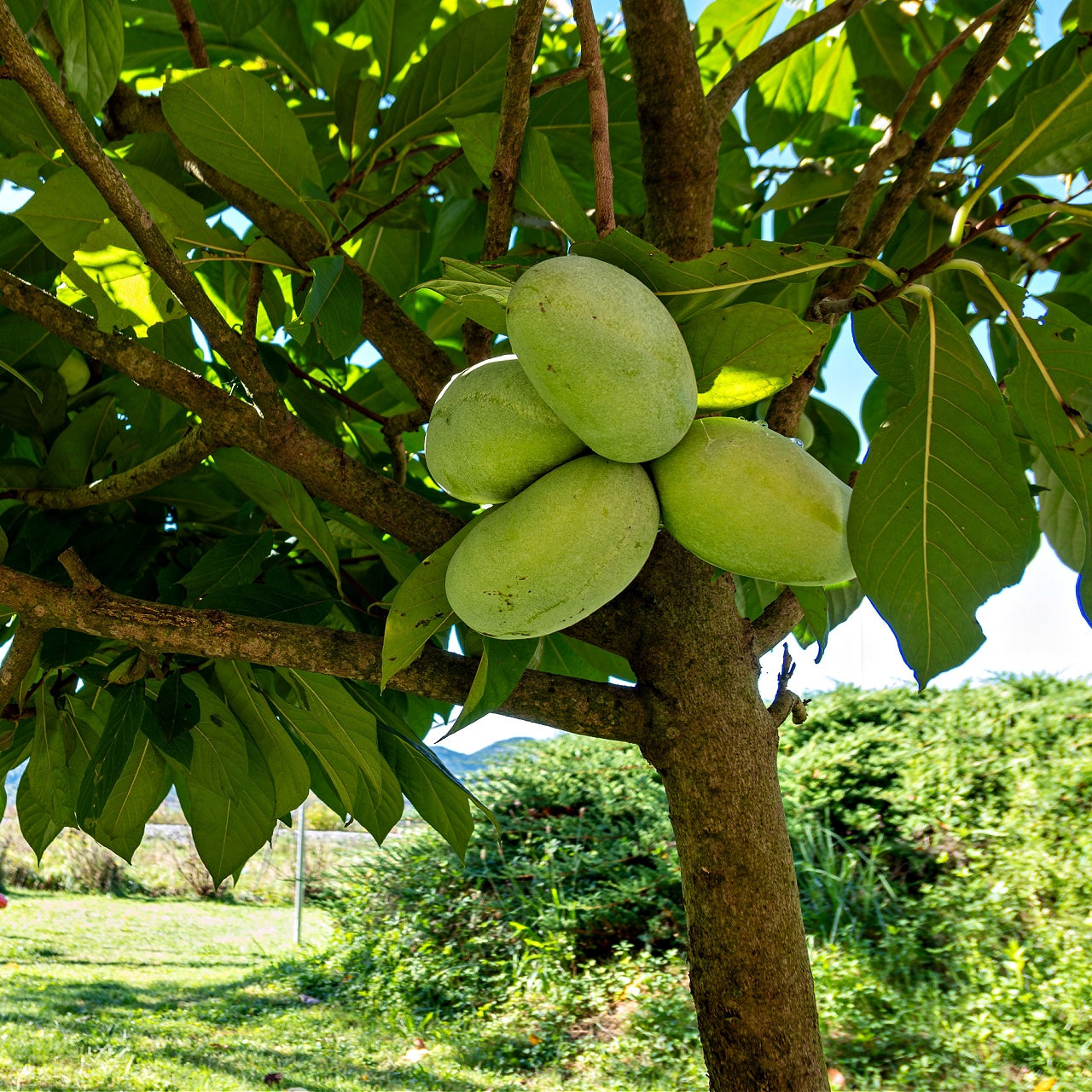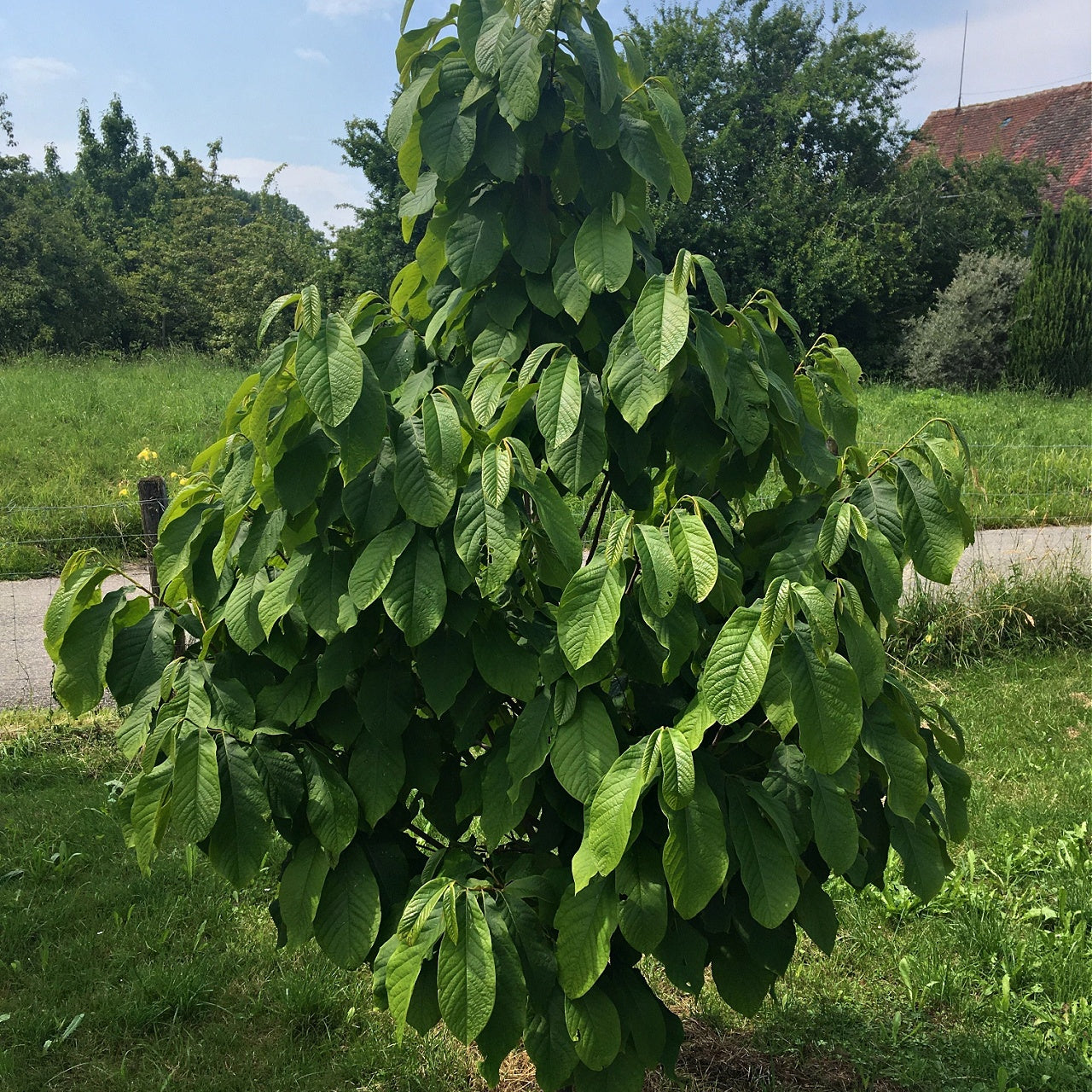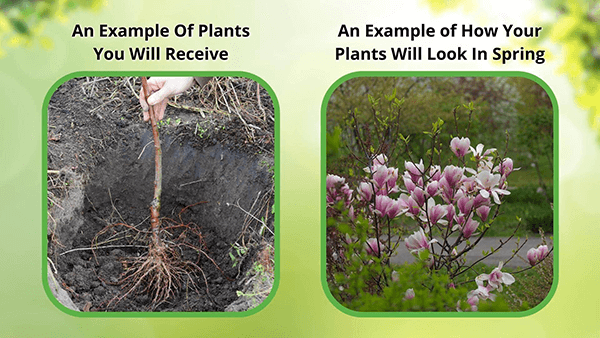Paw Paw Tree
Paw Paw Tree
This plant ships:
November 2025Couldn't load pickup availability
Exposure
Full SunHeight at Maturity
Under 25 FeetUsage
FruitingShipped As
Bare-rootShips
Ships Fall 2025Planting Zones
5-8Paw Paw Tree Also known as Asimina triloba
The Paw Paw Tree produces the largest fruit of any native to North America, making it a darling among property owners. Although it presents many purely tropical plant attributes, it thrives in a temperate climate throughout the U.S.
Paw Paw Tree Has Dark Green Foliage, And In Fall, It Turns To A Sunny Yellow
It showcases dark green leaves during the warm weather months contrasted by lush burgundy blooms between March and May. The leaves transition to a stunning bright yellow when the fall chill arrives. Owners typically allow the fruits to ripen on the branches and wait until they feel slightly soft before plucking them.
These Trees Reach About 25 Feet Tall
They can be integrated into a landscape and matured to their full potential height of 20-25 feet or deployed as a type of shrub with select pruning. They enjoy a robust root system that requires significant space to spread. As a modestly sized ornamental, they can mature in 3-4 years when planted as saplings. They require minimal attention, and deer avoid eating their leaves and fruit. Landscapers and gardening enthusiasts should consider the following when planting them.
The Trees Need Full Sun To Produce Fruit
- Light: It requires full sun to proliferate and produce fruit effectively. It can, in some cases, tolerate partial shade but will likely not bear fruit as well.
- Soil: It enjoys broad flexibility in terms of soil composition. The pH can range from 5.5 to 7.0, and it prefers moist conditions with good drainage. Optimal conditions include rich, loamy soils with plenty of organic matter, such as decomposing leaves and mulch. Avoid planting in primarily dry areas.
- Hardiness: This fruit-type asset thrives in the humid climate found in the eastern regions of North America and generally resists cold temperatures down to 28 degrees. It grows well in zones 5-8. Other minimal conditions usually include 150 days without a frost, 30 inches of rainfall, or equivalent watering care.
Plant 2 Trees For The Best Fruiting Experience
Property owners would be well served to include more than one in their landscape. This species requires cross-pollination with others in its family. Best practices typically include planting a Paw Paw Tree at most 30 feet apart.
Share
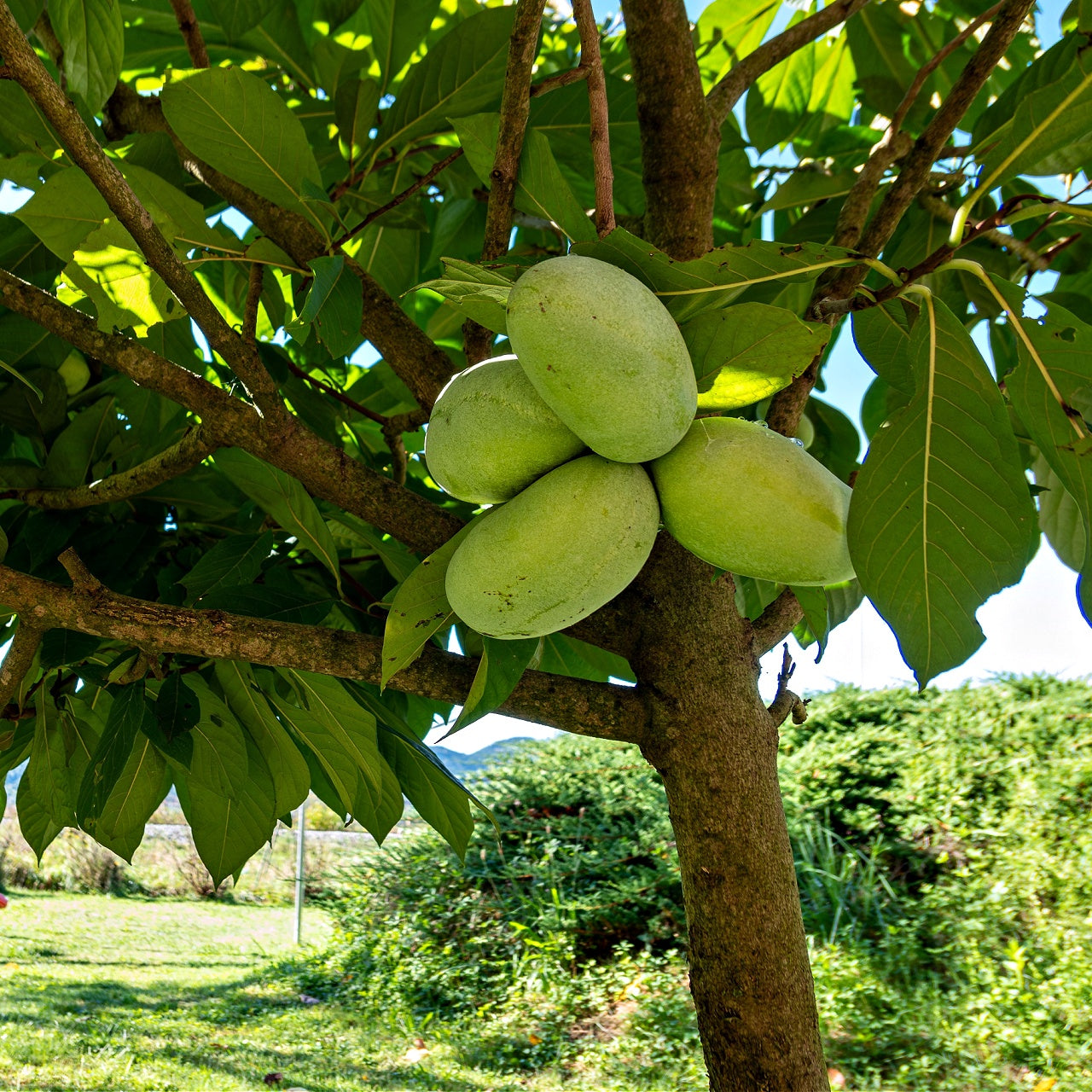
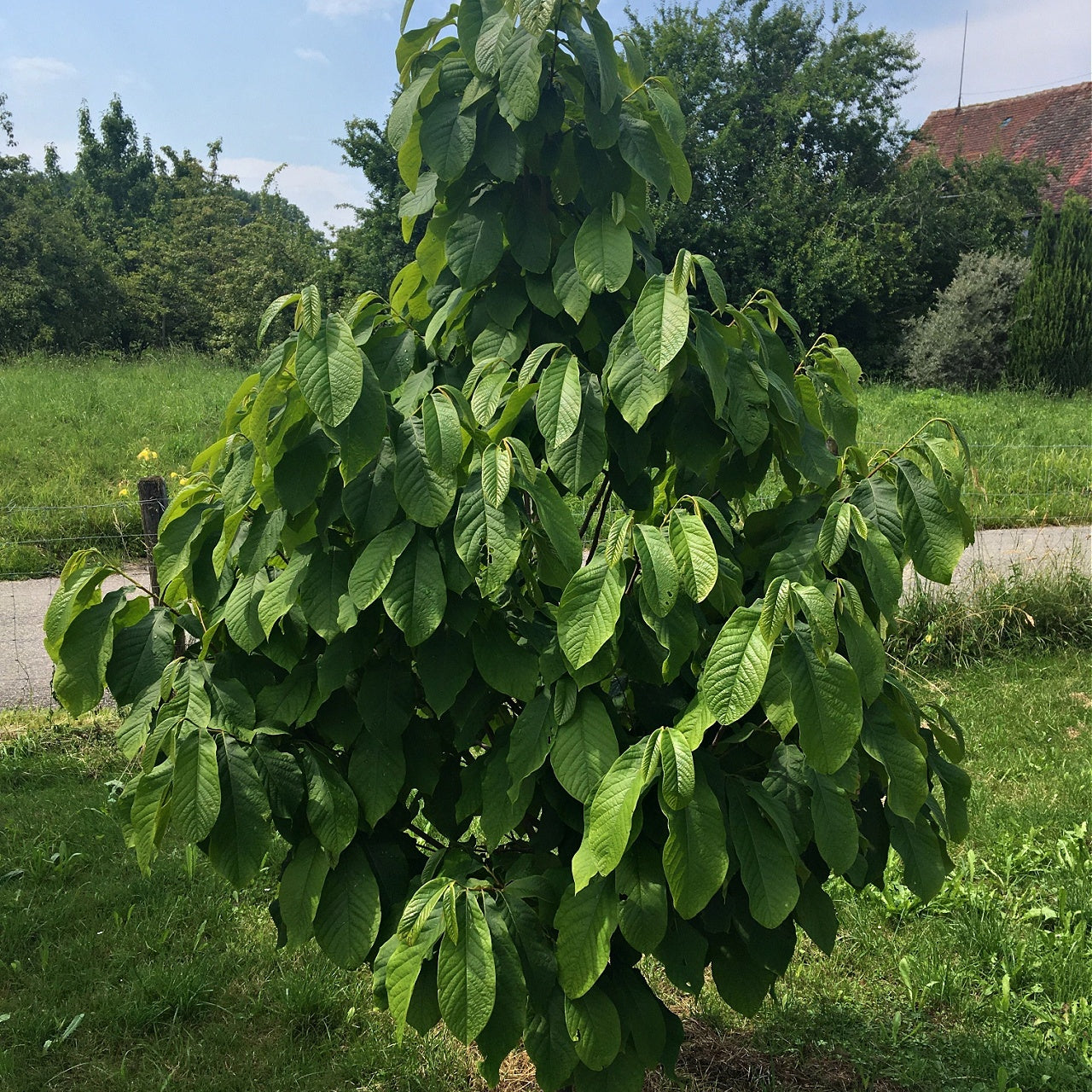
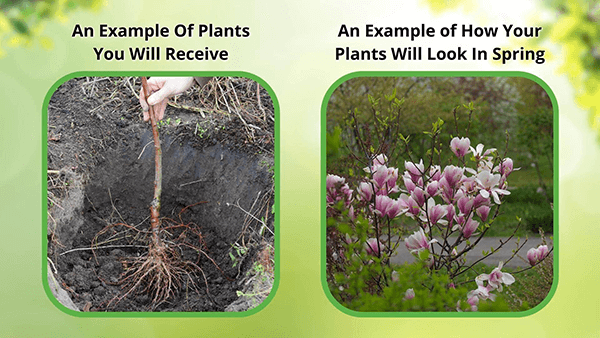
These are the biggest Pawpaws I ever got in the mail, at first I though they were over pruned but I potted them inside (to try to get an early jump) and they are leafing out. So I'm very happy and will order again from TWN!

